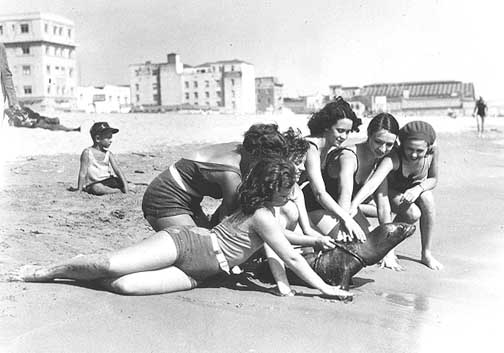Sometime
before 1920, Emory Straker had had quite enough of the Northeast in general and
Vermont in particular. He boarded a train to California, took an amazed look
around, and sent word for his family to follow him out to the Coast.
Stories
of blue skies and golden sunshine with nary a snowdrift in sight, thrilled his
parents Daniel and Maloney Maria, so they pulled up stakes and went west
themselves. Daniel died in Venice, CA 0n 16 December 1923, and Maloney breathed
her last on 18 December 1927.
Perhaps
because she was now living in a land of fresh starts, Edith, Emory's wife, resolved to have
her umbilical hernia repaired. The surgery was unsuccessful, and she died on 23
February 1922. She was 52 years old.
When her
daughter Frances went to the funeral home, she backed out of the viewing room
in consternation. She was certain she was in the wrong place; the attractive,
beautifully groomed woman displayed in the coffin couldn’t be her mother. But in fact it was Edith, and the funeral
director had given her the care her husband, and her own innate simplicity, had
always denied her.
Emory
seemed to enjoy life in Venice, California as a single man. Frances
sniffed that her father lived near the
beach so he could ogle all the floozies
in bathing costumes. Hubba
hubba!
 |
| Security Pacific National Bank Collection - LA Public Library |
Before
1930 Emory married a slender, savvy businesswoman named Iola. She was either
widowed or divorced, because she had four grown daughters in tow. On the 1930
census form, they claimed their last names were Woodley and Emory as their
father, but he could not have been. When they were conceived in Indiana, he was
shoveling snow in Mooers, NY.

